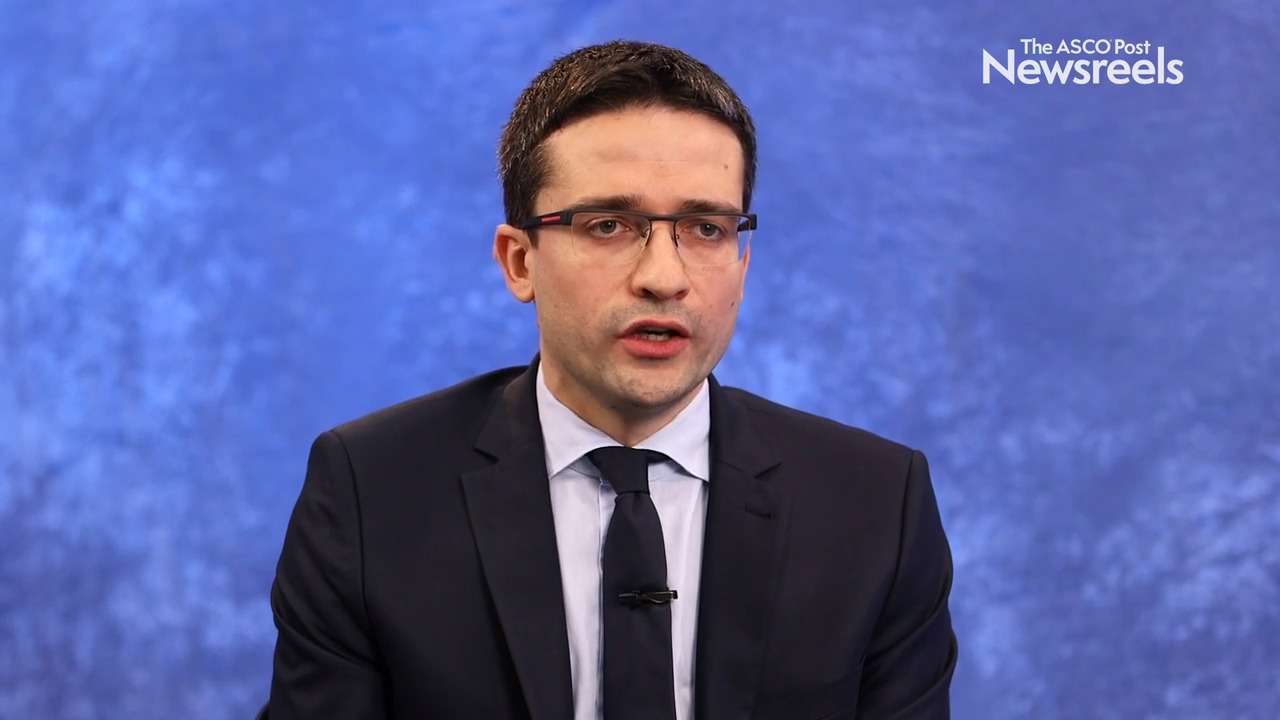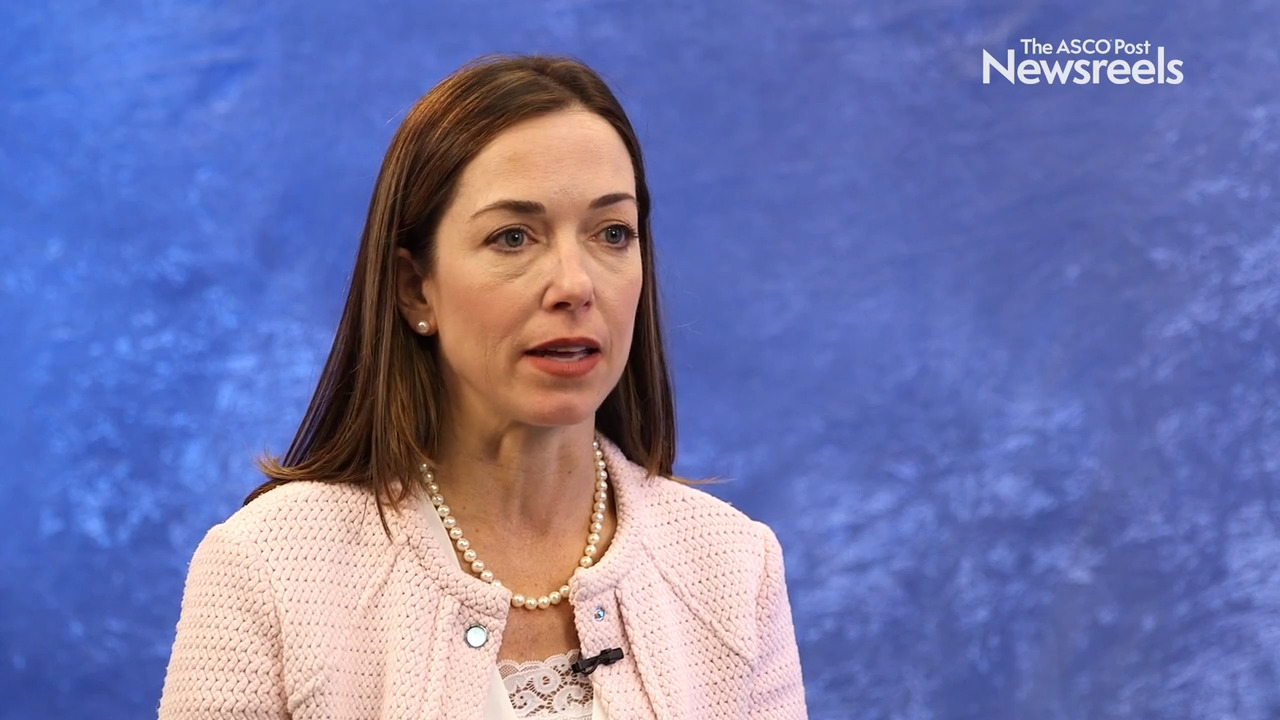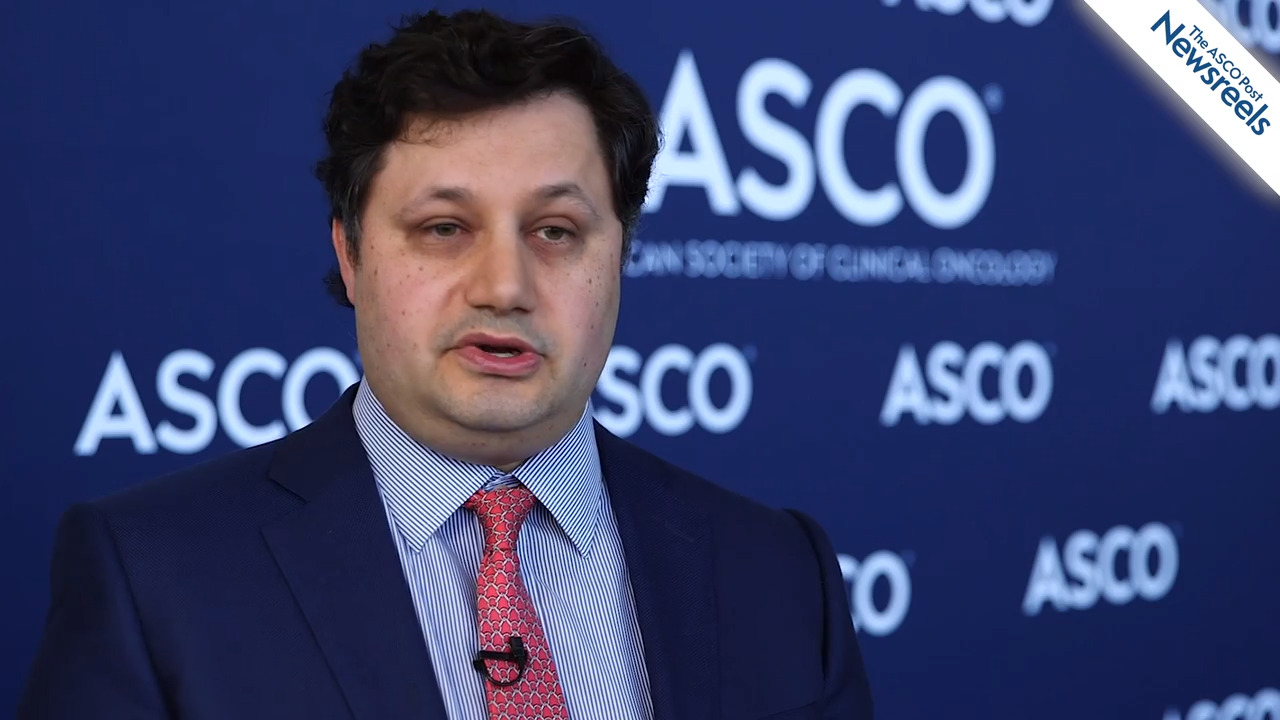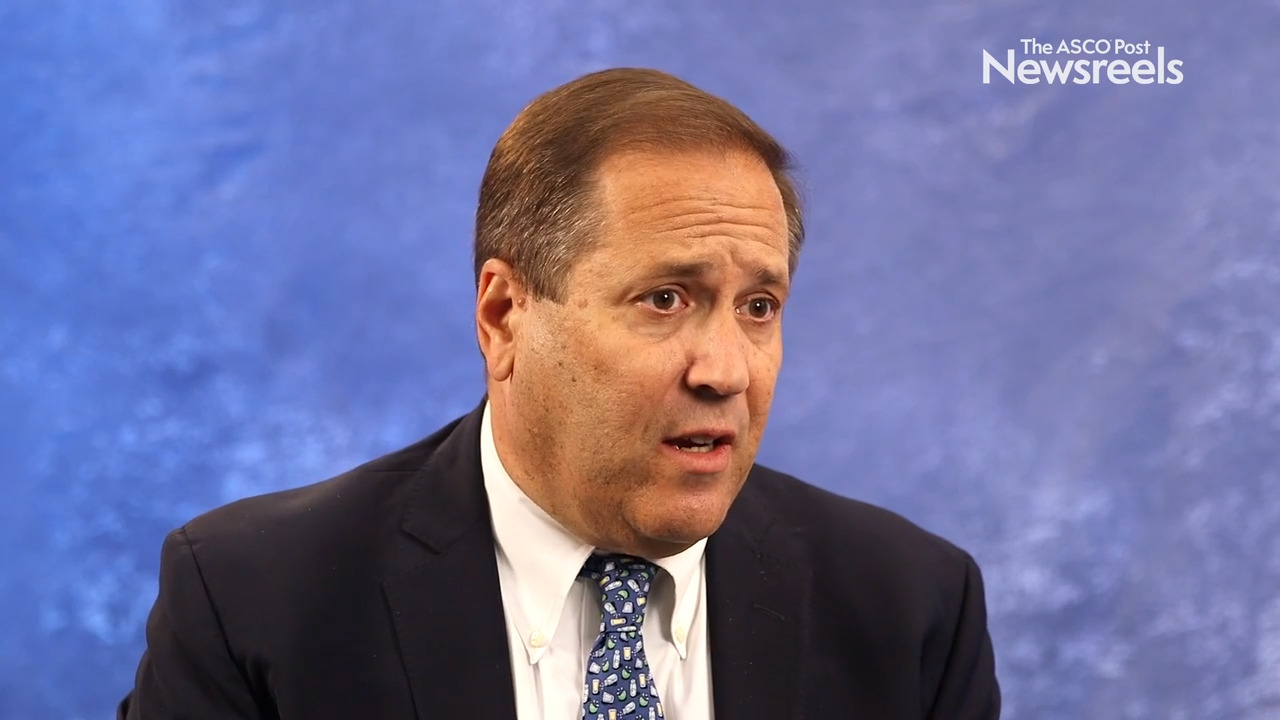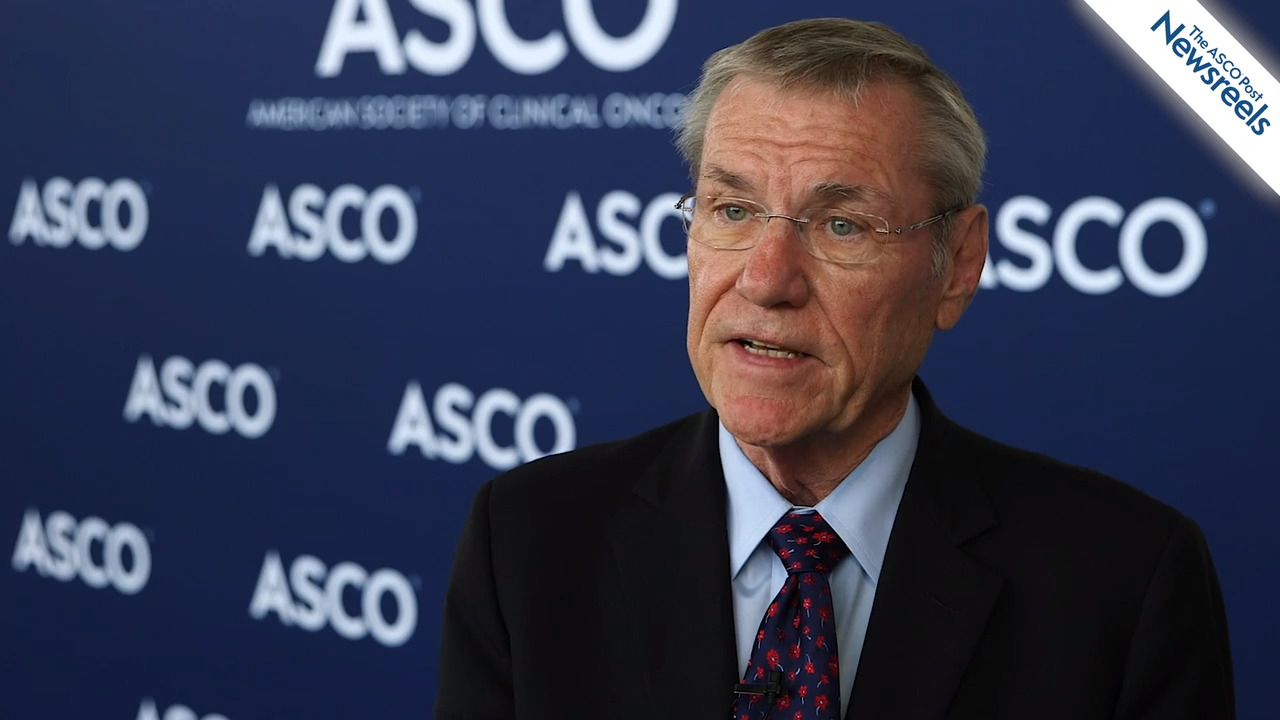Michael A. Thompson, MD, PhD, on Smoldering Multiple Myeloma: Reassessing Risk Stratification Models
2019 ASCO Annual Meeting
Michael A. Thompson, MD, PhD, of Advocate Aurora Health, discusses the implications of the revised diagnostic criteria for multiple myeloma, which removed patients at the highest risk of disease progression from the smoldering group, and a new model for smoldering disease that incorporates revised cutoffs for the previously used parameters (Abstract 8000).
Matteo Lambertini, MD, PhD, of the University of Genova and Policlinico San Martino Hospital, discusses data from an international cohort study on counseling women with breast cancer who have a BRCA mutation about the safety of becoming pregnant once they complete treatment (Abstract 11506).
Sara A. Hurvitz, MD, of the UCLA Jonsson Comprehensive Cancer Center, discusses the first study of ribociclib plus endocrine therapy vs endocrine therapy alone to demonstrate significantly longer overall survival in peri- and premenopausal women with advanced breast cancer (Abstract LBA1008).
Brian C. Baumann, MD, of Washington University School of Medicine, discusses study findings suggesting postoperative radiotherapy may be an option for patients with locally advanced bladder cancer after radical cystectomy who are unable or unwilling to use adjuvant chemotherapy (Abstract 4507).
Adam Brufsky, MD, PhD, of Magee-Womens Hospital and the Hillman Cancer Center at the University of Pittsburgh Medical Center, discusses phase III study findings on neratinib plus capecitabine vs lapatinib plus capecitabine in patients previously treated for HER2-positive metastatic breast cancer (Abstract 1002).
Rowan T. Chlebowski, MD, PhD, of the Los Angeles BioMedical Research Institute at Harbor-UCLA Medical Center, discusses study findings from nearly 2 decades of data, which showed a 21% reduction in deaths from breast cancer among postmenopausal women who adhered to a low-fat diet (Abstract 520).
